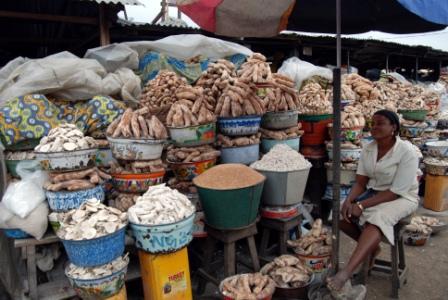Breaking News
Under Buhari’s Watch, Nigeria March Inflation Soars To Almost Four-Year High of 12.8%

Nigeria’s inflation rate climbed to the highest in almost four years in March, adding pressure on the central bank to ease foreign-exchange controls that are pushing up consumer prices.
According to Bloomberg reports, Inflation in Africa’s largest economy and oil producer accelerated to 12.8 percent on an annualized basis, the highest since July 2012, from 11.4 percent in February, the Abuja-based National Bureau of Statistics said by e-mail on Tuesday. Food prices rose 12.7 percent in March from a year ago, compared with 11.4 percent in the previous month, driven up by transportation costs, the planting season and foreign-exchange movements, the statistics agency said.
The Nigerian central bank has pegged the naira at 197-199 per dollar since March last year, and restricted trading in foreign currencies, making imports more costly for a nation that’s a net importer of refined fuel and food products. Importers struggle to access foreign exchange at the official rate, with the naira falling to around 320 on the black market.
“Import prices are a factor in the inflation rate,” Babajide Solanke, an analyst at Lagos-based FSDH Merchant Bank Ltd., said by phone before the data was released. The central bank “should probably look at adjusting foreign exchange controls.”
Median Estimate
The median of 16 economist estimates compiled by Bloomberg was for inflation to reach 11.8 percent. Consumer prices rose 2.2 percent in March from the month before.
While the government capped pump prices at 87 naira ($0.44) a liter (0.26 gallon) based on the official exchange rate, the average price for a liter of gasoline was 135.69 naira in March, according to a separate report from the statistics agency. Marketers regularly sell fuel above the level of the price cap. The government announced last week that it’s asked international energy companies to provide foreign currency to retailers to make import-orders.
The central bank increased its benchmark interest rate by 100 basis points to 12 percent last month after inflation accelerated to more than 10 percent in February. Price growth has been outside the government’s 6 percent to 9 percent target band for 10 months.




